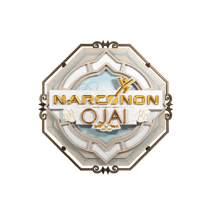Why Today’s Drug Withdrawal Can Seem Harder – What You Can Do About It

Over the past several years, I’ve noticed a shift in how students (What is what someone suffering from addiction who comes to Narconon is, a Student,)—especially younger individuals—respond to drug withdrawal. In weekly clinical discussions, I’ve raised this observation: today’s generation of clients often appears to have a lower pain tolerance during detoxification, and their emotional reactions seem more intense compared to those from older generations. Many of our staff have echoed this sentiment.
Where previous generations might have “taken it on the chin” during withdrawal with minimal complaint, today’s students often seem overwhelmed, needing more comfort medications or support just to make it through the initial phases.
Why is that?
During a recent counselor training session, our instructor, Dr. Dixie Brown—a PhD in Mind-Body Medicine and specializes in Integrative Mental Health—shared some compelling insights that shed light on this very issue that match what we have been seeing on the program with the recent changes in the drugs now available.
The Fentanyl Factor and the Evolution of Drugs

Dr. Brown pointed out that one of the most critical shifts in today’s addiction landscape is the widespread presence of synthetic opioids—particularly fentanyl and its analogs. She explained that there are now over 100 chemically altered forms of fentanyl being created in illegal labs. These analogs are often modified by a single molecular component, making them harder to detect in standard drug tests, yet significantly more addictive and potent.
According to a 2023 study published in Nature Chemical Biology, these variants bind more tightly to opioid receptors in the brain, disrupting normal pain processing and reward pathways more aggressively than heroin or morphine ever did. As a result, users develop physical dependence faster, experience more intense cravings, and—critically—undergo more painful, destabilizing withdrawal symptoms.
This isn’t just about opioids. Similar changes are happening across the board.
Methamphetamine today is far purer and more neurotoxic than it was in the 1990s.
Benzodiazepines are increasingly being combined with synthetic opioids, creating unpredictable poly-drug dependencies.
Even cannabis, once seen as mild, now contains THC levels up to three times higher than in past decades, contributing to a rise in cannabis-induced psychosis and dependency.
What’s Different—and What’s the Same

While the drugs themselves have evolved, some core principles of addiction remain unchanged. Addiction is still rooted in a need to escape pain—emotional, physical, or spiritual. What’s different is the speed, intensity, and neurological impact of the drugs themselves.
Younger generations are being exposed to these supercharged substances at earlier ages, often with less resilience, fewer coping skills, and an overwhelming influx of mental health messaging that normalizes psychiatric medication for every discomfort.
As counselors and caregivers, we must recognize this dual truth:
1. Yes, the substances have changed, becoming more aggressive and addictive.
2. But also, our culture has shifted—raising generations that may be less prepared emotionally to face difficulty without medication.
The Narconon Ojai Approach: Strength Without Substitutes

At Narconon Ojai, we’ve stayed grounded in a drug-free, holistic approach to withdrawal and rehabilitation. Our New Life Detoxification Program, which combines nutritional support, exercise, and dry heat sauna therapy, helps the body naturally eliminate drug residues. This is especially important today, as synthetic drug residues can remain locked in fatty tissues, subtly influencing cravings and mood even months after cessation.
Our withdrawal process uses vitamins, minerals, hydration, and personalized care to ease discomfort. We empower clients to face and overcome withdrawal—not medicate them through it. This builds confidence and resilience, which are vital tools for long-term sobriety.
Fully embracing the modern science of drug addiction and the modern landscape of addictive drugs we move beyond the concept of "harm reduction" by focusing our approach on restoring the individual’s natural ability to overcome life’s challenges without dependency on drugs, aiming for a complete and lasting solution.
Looking Ahead
The drugs are changing. The brain is changing. But human potential to recover remains the same.
Our responsibility is not just to react to the evolving drug crisis but to lead with effective, time-tested solutions. If you or someone you love is struggling with addiction—whether to opioids, meth, prescription medications, or even alcohol—Narconon Ojai offers a path back: natural, empowering, and life-affirming.
Let’s help this generation rise above the challenge—not cushion them through it. Contact us today.


